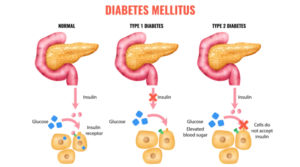
Unraveling the Significance of Early Hepatitis Screening
A Silent Threat to Liver Health
Hepatitis is a stealthy liver disease that can progress silently, causing severe damage if left undiagnosed and untreated. In this article, we explore the crucial importance of early hepatitis screening and detection, empowering individuals to take control of their liver health and well-being.
Understanding Hepatitis and its Types
A Diverse Liver Condition
Hepatitis is classified into different types, including Hepatitis A, B, C, D, and E, each with distinct causes, modes of transmission, and consequences for liver health.
The Silent Progression of Hepatitis
The Subtle Nature of Liver Damage
Acute Hepatitis: Initial infection may cause mild symptoms or none at all, making it challenging to recognize without screening.
Chronic Hepatitis: Often asymptomatic, chronic hepatitis can silently progress, leading to cirrhosis or liver cancer over time.
Hepatitis Screening and Early Detection*
Taking Charge of Liver Health
Who Should Get Screened: Individuals with risk factors such as exposure to infected blood, unprotected sex, and intravenous drug use should consider screening.
Routine Screenings: Regular screenings are essential for those at higher risk and for populations with a higher prevalence of hepatitis.
Benefits of Early Hepatitis Detection*
Preventing Liver Damage
Timely Treatment: Early detection allows for prompt treatment, reducing the risk of progression to chronic liver disease.
Preventing Transmission: Identifying infected individuals early helps prevent further transmission of the virus to others.
Overcoming Barriers to Screening
Addressing Challenges
Stigma and Fear: Stigma surrounding hepatitis can discourage individuals from seeking testing and treatment.
Access to Testing: Making screening more accessible and affordable can encourage more people to get tested.
Hepatitis Screening – A Life-saving Measure
Inspiring Personal Stories
Sharing stories of individuals whose lives were saved through early hepatitis screening can encourage others to prioritize their liver health.
Hepatitis Screening and Public Health
The Bigger Picture
Preventing Outbreaks: Early detection can help contain hepatitis outbreaks and prevent their spread.
Reducing Healthcare Burden: Screening can reduce the burden on healthcare systems by preventing advanced liver disease.
Promoting Awareness and Education
A Collective Effort
Public Education: Increasing awareness of the importance of hepatitis screening can promote proactive liver health.
Medical Professionals: Healthcare providers play a crucial role in educating patients about the benefits of early screening.
Embracing Proactive Liver Health
Early screening and detection are the key to combating hepatitis and preventing the silent progression of liver disease. By empowering individuals with knowledge, reducing barriers to testing, and promoting widespread screening initiatives, we can work towards a world where hepatitis is detected early, treated effectively, and liver health is prioritized for all.



